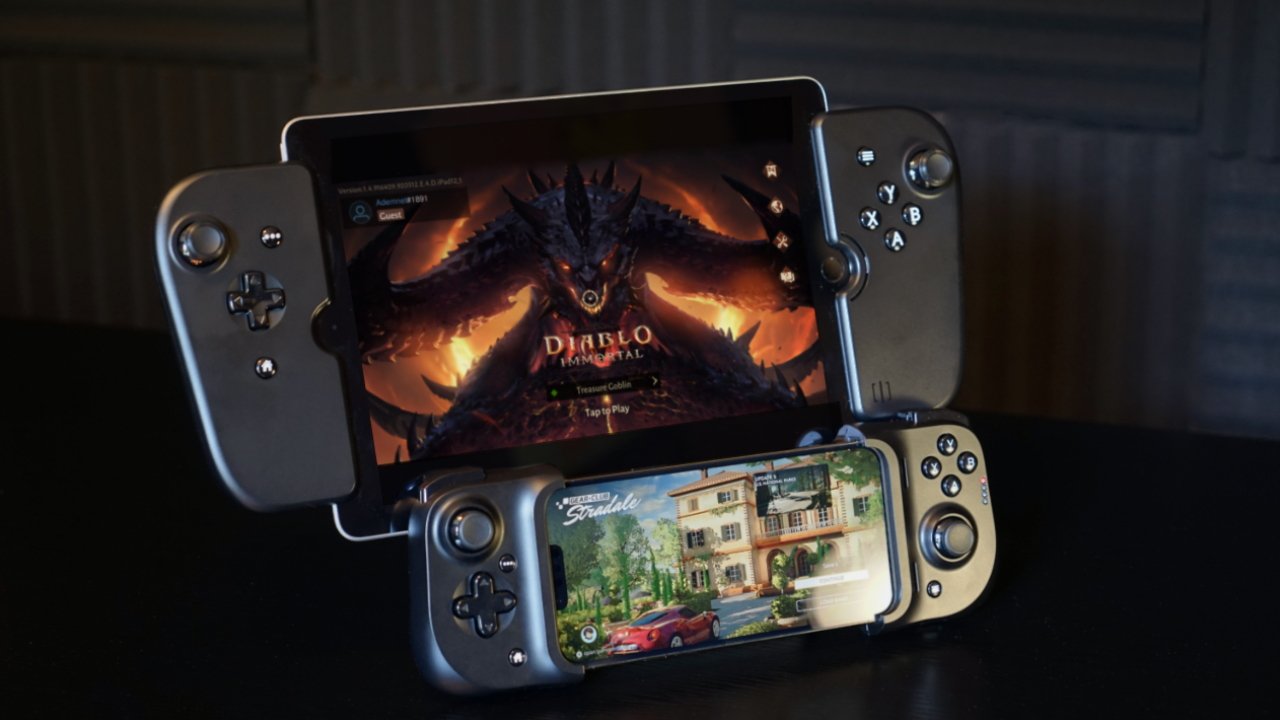
Gamevice makes controllers that clip onto an iPhone or iPad to transform them into portable gaming consoles, but their clunky design leaves space for improvement.
Gamevice was among the first companies to create dedicated controllers for mobile devices, and their approach was incredibly novel. The vice-like controllers grip each side of the iPhone or iPad and make them more akin to a Sony PSP or Nintendo Switch.
The recent 2022 redesign brought the controllers' design language and features up to date, but they remain nearly identical to previous models. The iPhone controller will feel familiar to anyone who has used a Razer Kishi controller because it was built with Gamevice as a partner.
The iPad controller is unique since it is one of the only "vice" controllers built for that size class. Since it uses a Lightning port for the interface, it is only compatible with Apple's 10.2-inch iPad and older devices like the 10.5-inch iPad Pro.
Gamevice controller design
The Gamevice controllers are very similar despite the significant size difference. The iPad controller is a blown-up version of the iPhone controller, but the analog sticks are in different positions.
Gamevice for iPhone design
The Gamevice for iPhone wraps around the outside edges of an iPhone to grip the device. One side has a Lightning connector to interface with the iPhone, and the other must be pulled onto the side with some elastic resistance.
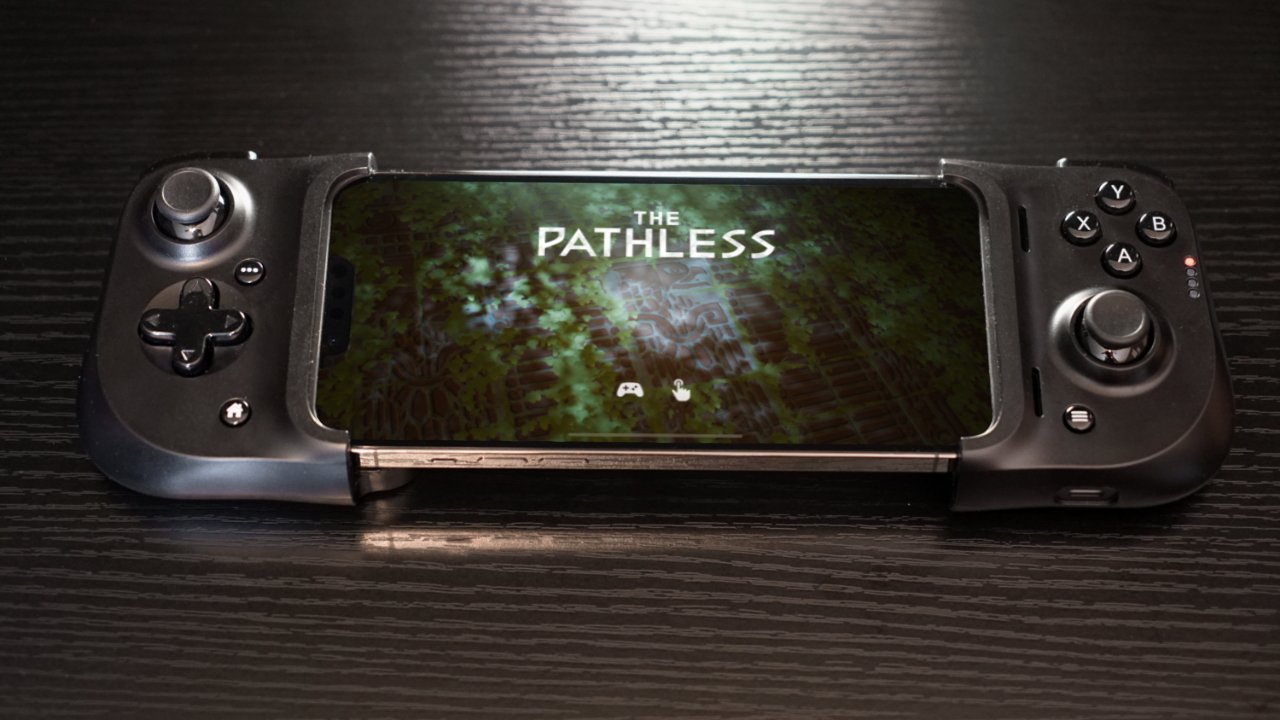
The iPhone feels secure within the Gamevice controller, but devices smaller than the iPhone 13 Pro Max may need an adapter to ensure the device fits properly.
When the controller isn't in use, it folds into a small square shape and is secured by a panel that clicks into place. Unlike the Backbone One controller, the separator that keeps the controller sides connected is a flimsy bit of elastic.
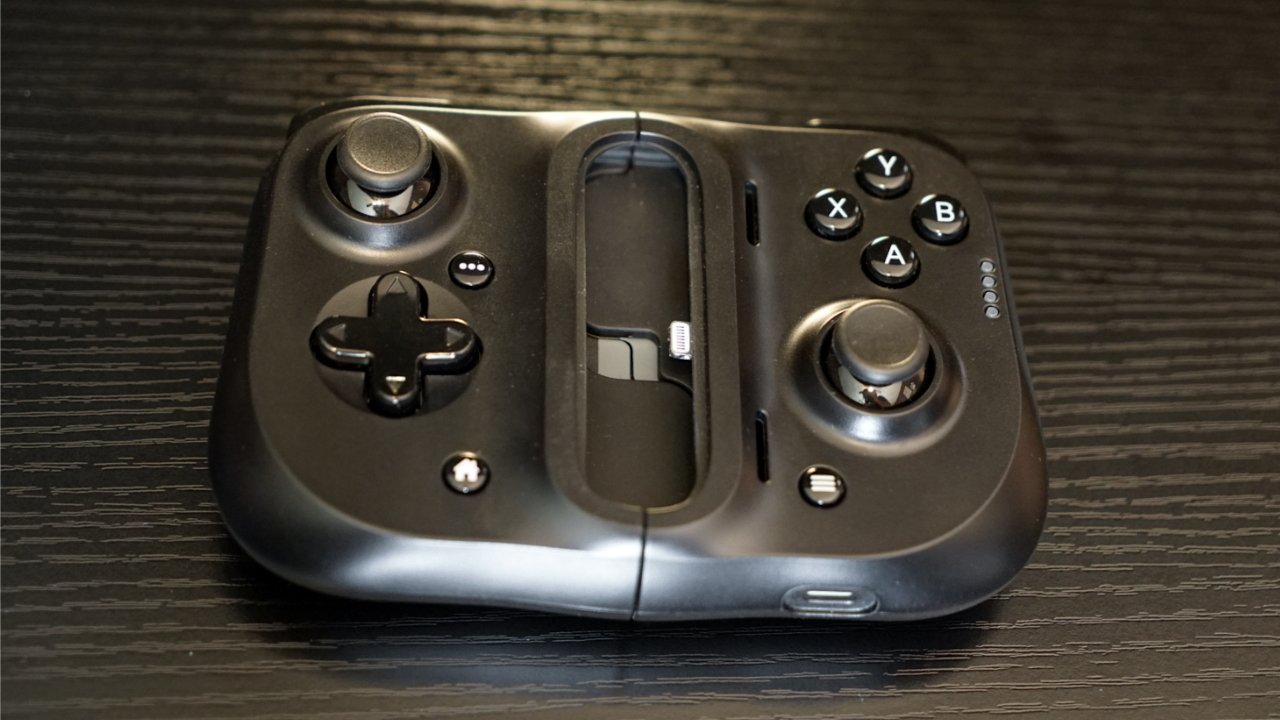
The controller buttons, triggers, and joysticks are all well built and feel good in the hand. Again, this controller seems to be a reskinned Razer Kishi, so fans of that controller will find this one identical in design and performance.
The joysticks sit diagonally from each other to emulate the Xbox controller style. However, the way you grip the controller is different than an Xbox controller since there aren't any handles, so you'll find yourself adjusting your hand to reach the joystick properly.
Gamevice for iPad design
The first thing to notice about the Gamevice for iPad is its size. The large grips are enormous compared to the iPhone controller or even standard controllers. One side of the Gamevice controller is nearly the same size as a Sony Dualsense controller.
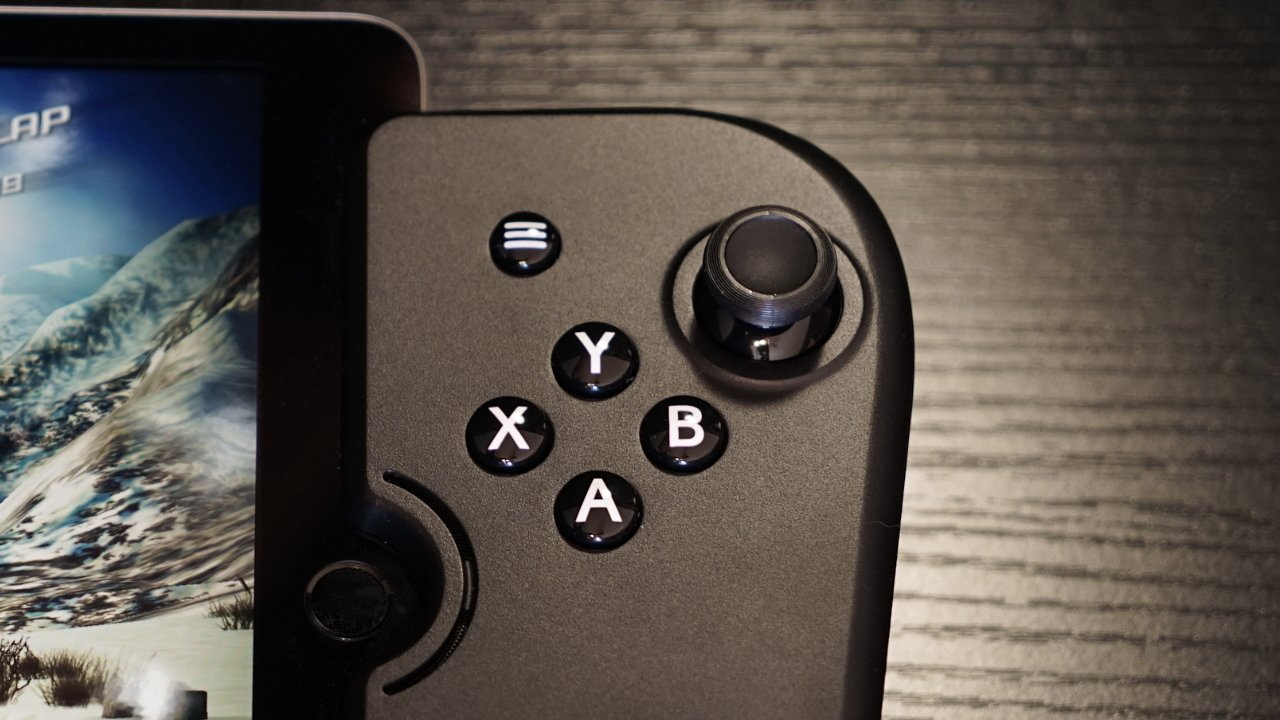
It seems the substantial size is a result of the device the controller connects to. The 10.2-inch iPad isn't small by any stretch, and the controller design needs plenty of surface area to grip for a stable mount.
When the iPad is mounted to the Gamevice controller, the weight and footprint increase significantly. That doesn't make it unusable, but you'll find that your hands and arms will be exhausted well before the battery.
Like the iPhone controller, the Gamevice for iPad uses an elastic band to cause the controller sides to grip the iPad. However, when the iPad isn't in the controller, there is no way to fold up or store the controller efficiently.
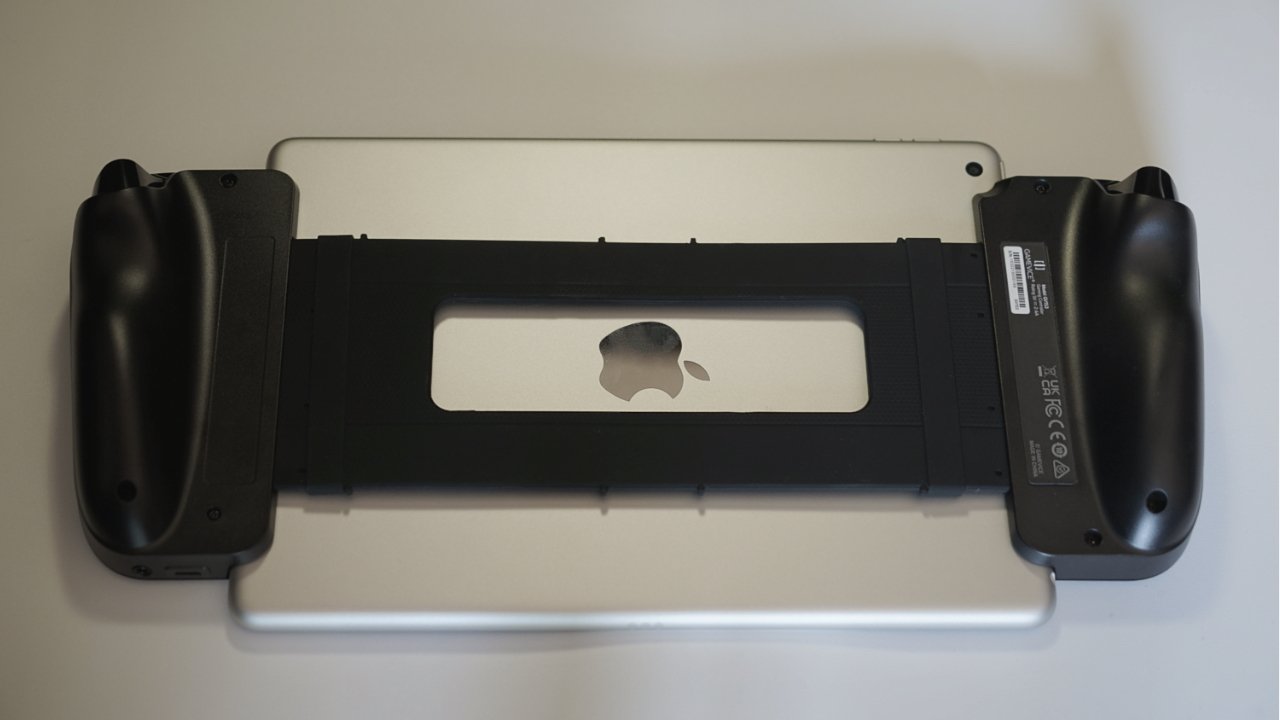
The button placement and style are identical to the iPhone controller, but since there is more space, they are slightly larger. The joysticks are placed at the extreme edges of the controller, directly across from each other.
Using the Gamevice controllers
The experience of using a Gamevice controller is identical regardless of the device used. Connect the controller over Lightning, and the iPhone or iPad immediately recognizes the controller.
Gamevice has a launcher app that surfaces available game streaming services, Apple Arcade titles, and App Store games. The launcher doesn't seem aware of what games are installed or available to the user, so it works as a basic directory rather than a useful game library.
Both controllers feature a Lightning port for passthrough charging and a headphone jack for wired audio.
Using the Gamevice for iPhone
Going from a controller in storage to playing a game should be as simple as possible to eliminate friction. The Gamevice controller is a bit cumbersome at this stage.
First, you'll need to remove any case on your iPhone. If you're using a smaller iPhone, the included size adapter will need to be available.
Then you'll need to unhook the strap mechanism on the controller and attach it to your iPhone. This is an odd mechanism since the switches must be pushed away from each other, not pinched.
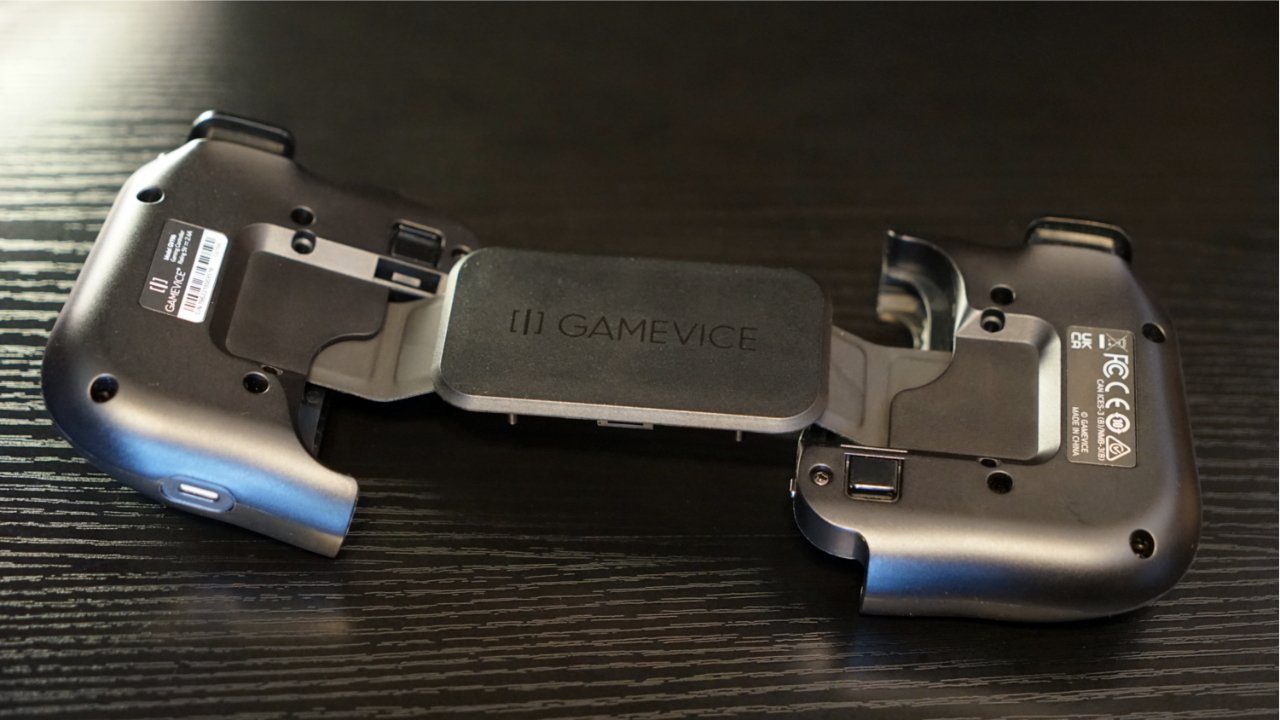
Once the iPhone is securely mounted in the Gamevice controller, you're ready to play. But, since the launcher tool doesn't track what games are installed on your device, you'll need to navigate to your games folder and manually launch the game.
We wanted to note this experience since it differs greatly from the similarly-priced Backbone One controller. While the Backbone can't fold up as small for storage, the user just needs to insert the phone, pull the controller out and around the phone, and you're ready to go.
Plus, the Backbone launcher opens from a dedicated button on the controller, and it remembers what games are installed.
The controller feels good to hold if a little thick. The buttons are responsive, and the triggers travel smoothly when pressed.
We're not a fan of the right analog stick due to the awkward angle, but that may be due to personal preference more than bad design.
Since it is a wired controller connection rather than a Bluetooth connection, there is no worry about lag or missed inputs. That is especially critical when playing streamed games like on Xbox Game Cloud or Stadia.
We enjoyed the console-like experience of playing with a controller attached directly to our device.
Using the Gamevice for iPad
The iPad controller is set up similarly to the iPhone one, and it is simpler since it can't be folded up for storage. The iPad slides right in, and the controller wraps around without issue.
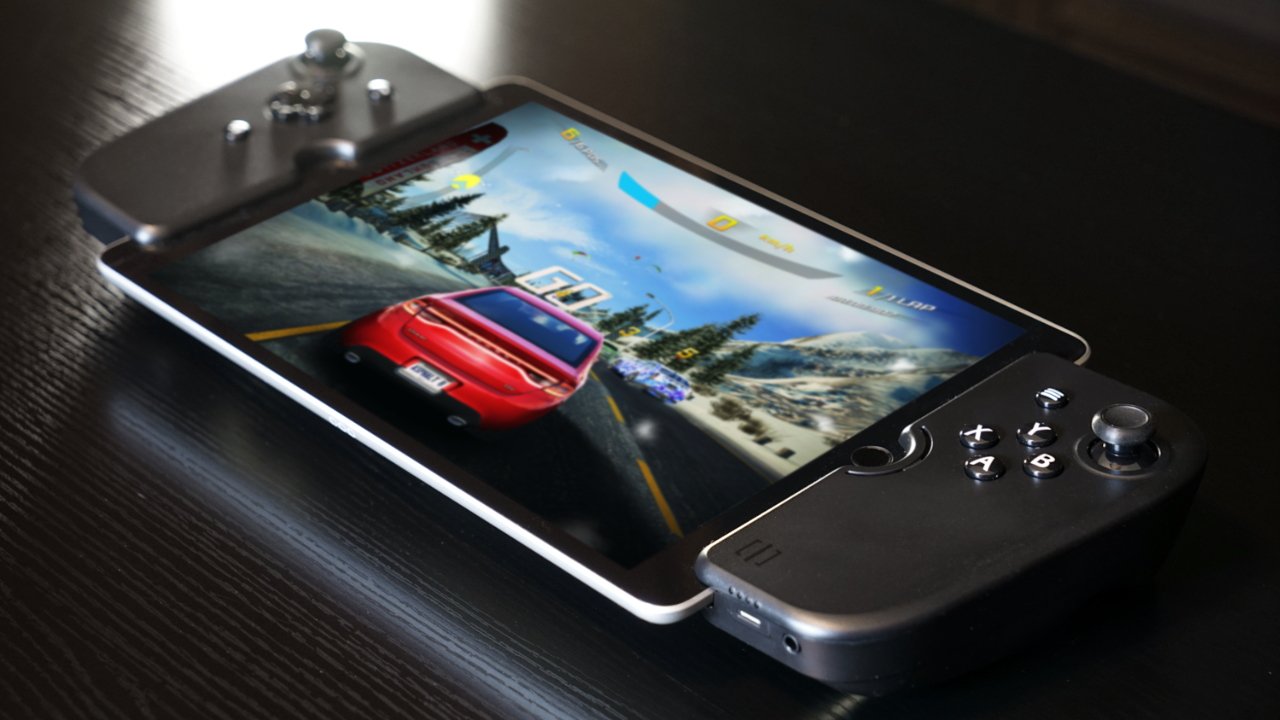
The controller feels bulky but not too heavy in your hand. We played "Diablo" and "Asphalt 8" comfortably without any problem.
The button layout takes some getting used to since they are packed close together on the large controller. We found ourselves reaching well below the d-pad when searching for it. The joysticks are placed well for the larger design and sit where your thumbs rest naturally.
Should you buy a Gamevice controller
If you're in the market for a game controller, then the Gamevice controllers are great options. However, we believe the hardware execution for the iPhone isn't on par with what other companies are doing in the space.
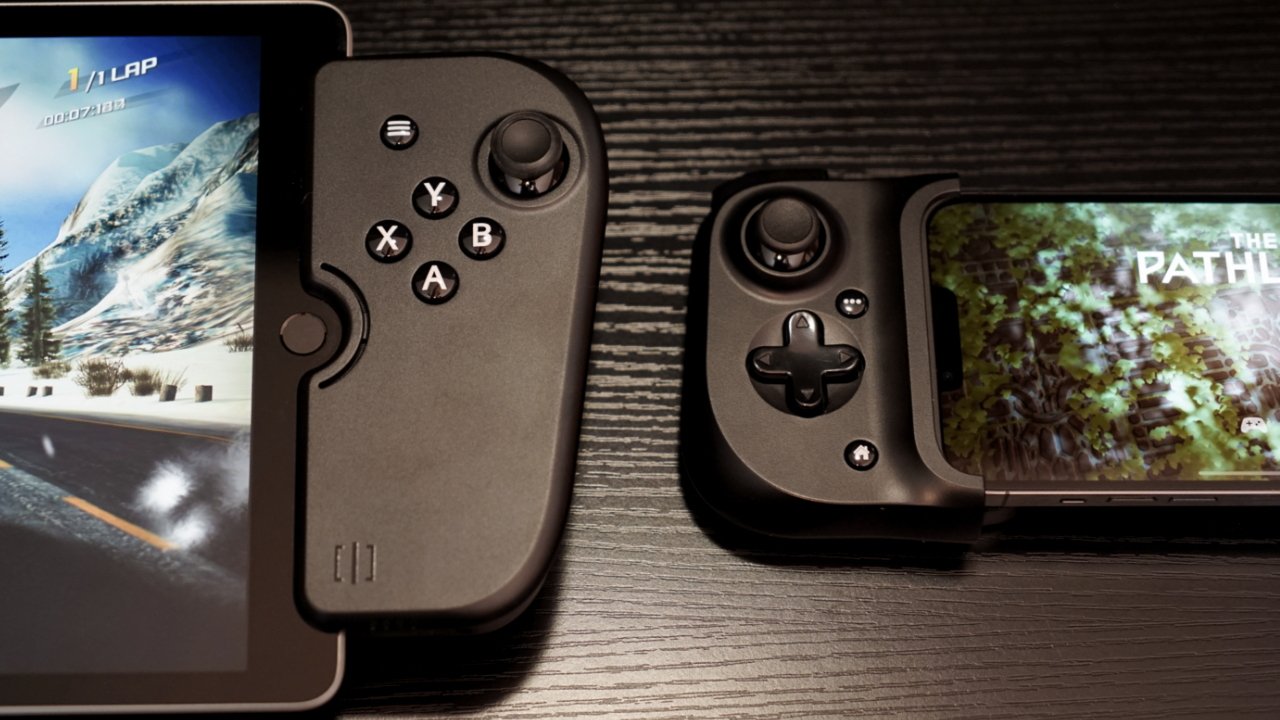
The Gamevice for iPad is the only controller we can recommend for the Lightning-equipped iPads. Others exist, but Gamevice has the best design and functionality so far.
We'd like to see the Gamevice app improve with some awareness of what the user has downloaded or what subscription services they use. Of course, users can always download a different app that better suits their needs.
Pros
- iPhone controller has compact design for storage
- Buttons are responsive
- Lightning connection and passthrough charging
- Zero lag thanks to hard-wired connection
Cons
- Gamevice app doesn't add to the experience
- No screenshot button
- Bulky design
- Gamevice for iPad doesn't fold up for storage
Rating: 3.5 out of 5
Where to buy the Gamevice controllers
- Gamevice for iPhone is $79.95 normally, but is on sale for $49.95 on the Gamevice website at the time of publication.
- Gamevice for iPad is $99.95 on the Gamevice website.
- Gamevice for iPhone is $79.95 normally, but is on sale for $49.95 on Amazon at the time of publication.
- Gamevice for iPad is $99.95 on Amazon.